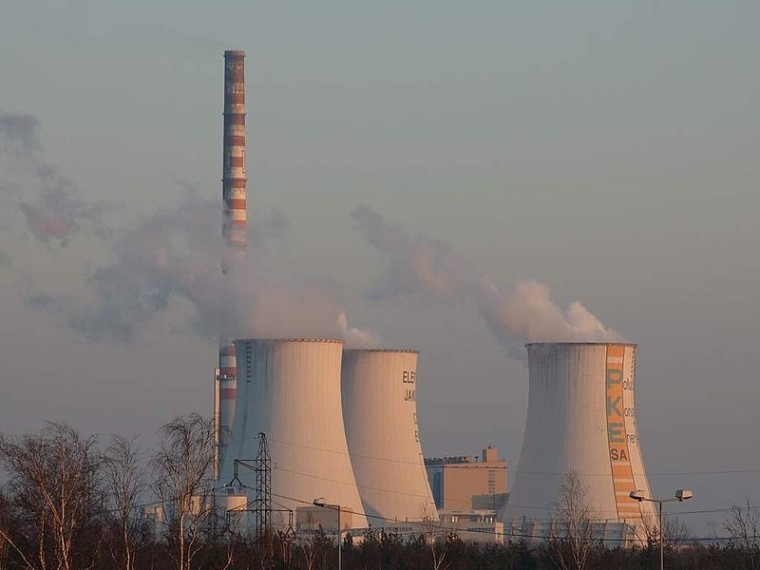The discussion on reforming the CO2 emissions trading system is really an element of a larger conversation on changing the 2030 reduction target. This is why already today we would like to suggest how to reform the system and set the tone for next year’s discussions on the ETS. We acknowledge changes need to be made, because the current ETS, while it is the main tool for reducing emissions in the EU, does not offer an optimal mechanism for allocating allowances – Adam Guibourgé-Czetwertyński, Deputy Minister for Climate and Environment, explained in an interview with BiznesAlert.pl.
BiznesAlert.pl: You presented Poland’s proposition for reforming the EU ETS system during the last EU Council meeting. Why do you think the system should change? Another reform of the system is planned for next year anyway.
Adam Guibourgé-Czetwertyński: The discussion on changing the CO2 emissions trading system is really an element of a larger conversation on changing the 2030 reduction target. This is why already today we would like to suggest how to reform the system and set the tone for next year’s discussions on the ETS. We acknowledge changes need to be made, because the current ETS, while it is the main tool for reducing emissions in the EU, does not offer an optimal mechanism for allocating allowances. In result, the money, instead of being invested in areas with the biggest needs and where it could contribute to biggest reductions, is spent on purchasing allowances at prices that are constantly increasing. Once the European Commission proposes a reform in June 2021, we will continue talks with all member states, but we are hoping that already today our ideas and way of thinking will be included in the EC proposition that will be revealed next year.
As part of the three pillars, the Climate and Environment Ministry is also talking about a different, a more just division of the free allowances allocation. Is the current system unfair?
Unfortunately, this is a misunderstanding. We are not proposing any changes to the free allowances pool. That pool remains the same in essence. We are however, proposing to change the allocation key for auction allowances, i.e. those allowances that are for sale. The problem is that the way auction allowances are awarded to member states today, causes a situation where emissions are calculated twice. We are talking about emissions, to which free allowances are allocated. Not only are they 'covered’ by free allowances, they are also used for calculating the auction pool for a given state. In result, the emissions are rewarded twice – first as part of a separate pool of free allowances, and then – again as part of a higher volume of allowances for an auction for a specific state. This situation is unfavorable to Poland, because the methodology promotes member states in which the industry is responsible for a large portion of emissions. Like I mentioned before, the problem is that the money is not spent where it is needed the most, i.e. on investments that reduce emissions.
What is the point of the new model for allocating free allowances if in the future its size will be decreasing? The rich countries make profits off of their allocation pools. Do you think they will give that up?
Our proposition is only about changing the allocation of auction allowances. Of course the pool of all allowances will be decreasing, because the underlying goal of the system is to force emission cuts. This means changing the allocation key makes even more sense, because we should move the investments to areas where there is the most to do, and where the biggest reductions will occur. We are either talking about European solidarity and a successful fight against climate change as a community, or we are maintaining a system where the rich can afford more investments; but the poor are forced to always look for new ways to bankroll their projects.
Poland is calling for expanding the existing Modernization Fund or creating a new one, which will be based on energy poverty indicators. How would the fund acquire additional money? What would be the criteria for receiving financing? Is this an offer for zero-emission sources only, or is gas included?
The goal of the new Fund would be to support member states in eliminating the negative social impact of the climate policy, and to fight energy poverty. We are proposing that countries whose GDP per capita is lower than the EU average be the beneficiaries of the fund. We believe these states find it harder to fund key investments, and the changes will impact those states the most, which is why the EU solidarity mechanism should be triggered. In our opinion, the distribution criteria should be based on the size of the population and the participation of expenses on electricity in the expense structure of individual households. The money would come from a portion of the auction system, and would be used to lower electricity expenses of households, for instance by investing in improving energy efficiency of buildings or developing renewable sources.
Poland would like to use nuclear power to curb its CO2 emission. Would the proposed fund support this solution?
No, the new fund would not bankroll nuclear power.
What was the response from other states? What is the legal path for this proposition?
The proposition to set up a new fund to tackle energy poverty was met with interest among a number of member states, especially those that would benefit from the new mechanism. At this point we are talking about this with the EC and other states.
During its last meeting the Council adopted a partial position on the CO2 emissions target by 2030. The Commission and the majority of member states want to increase the target to 55 percent. The Council of the European Union and Poland will have to present their positions on the matter during the European Council meeting in December. What are those?
The EU Council was right to wait for the European Council decision on the matter. The decision should be made next month. Poland believes the target should not go up unless a sufficient support mechanism, and a just split of reduction effort across the EU are ensured. Most of all, we need to see how these targets are supposed to be implemented. The EU’s burning ambition should not be pursued at the expense of Poland’s development.
Interview by Bartłomiej Sawicki









